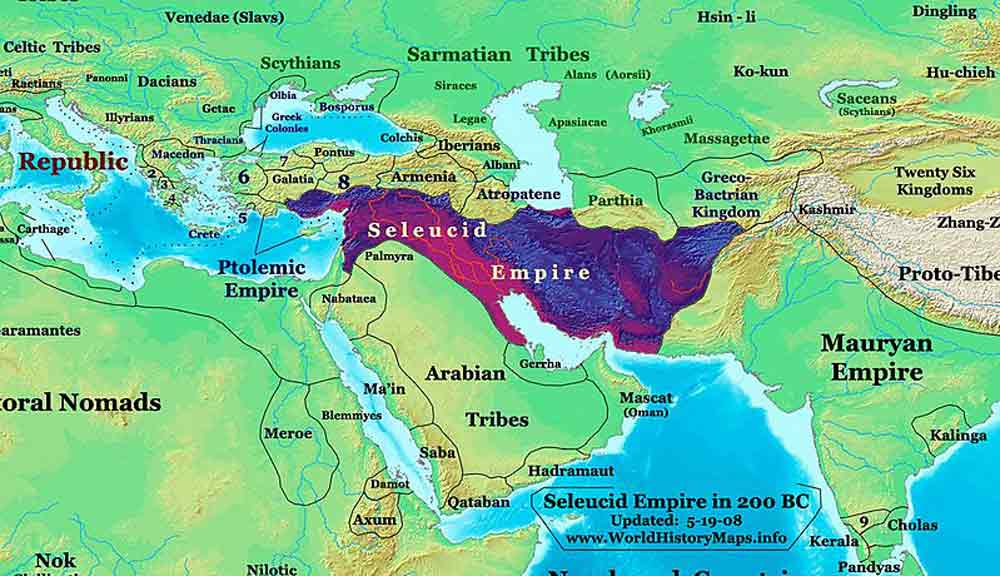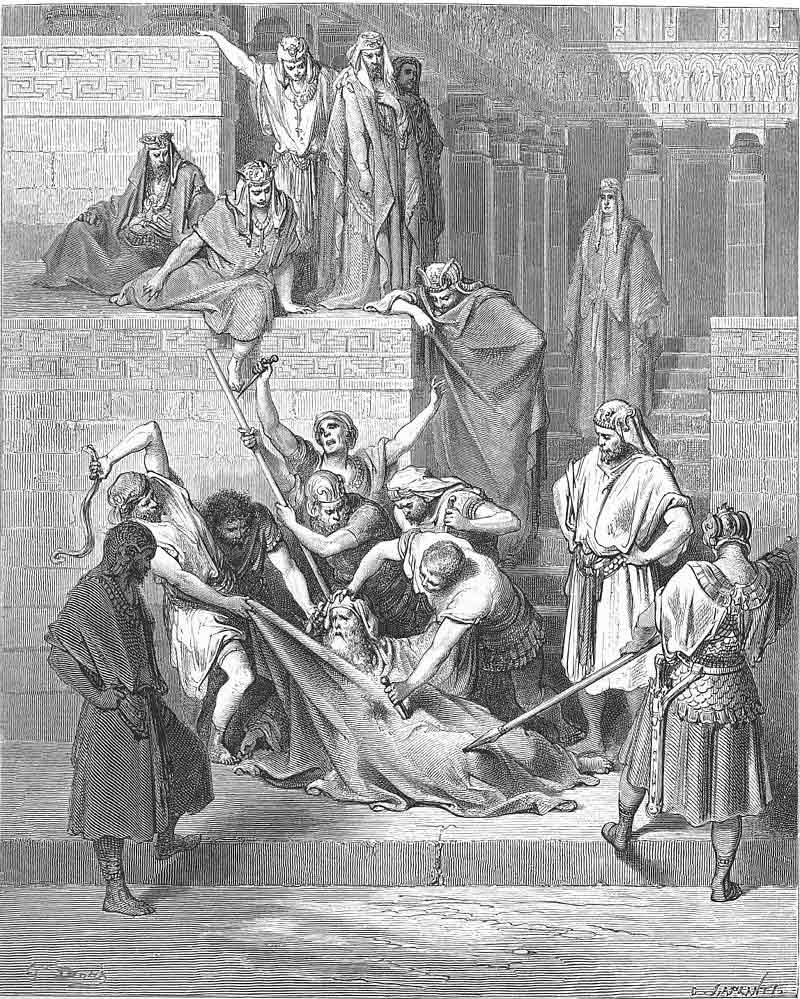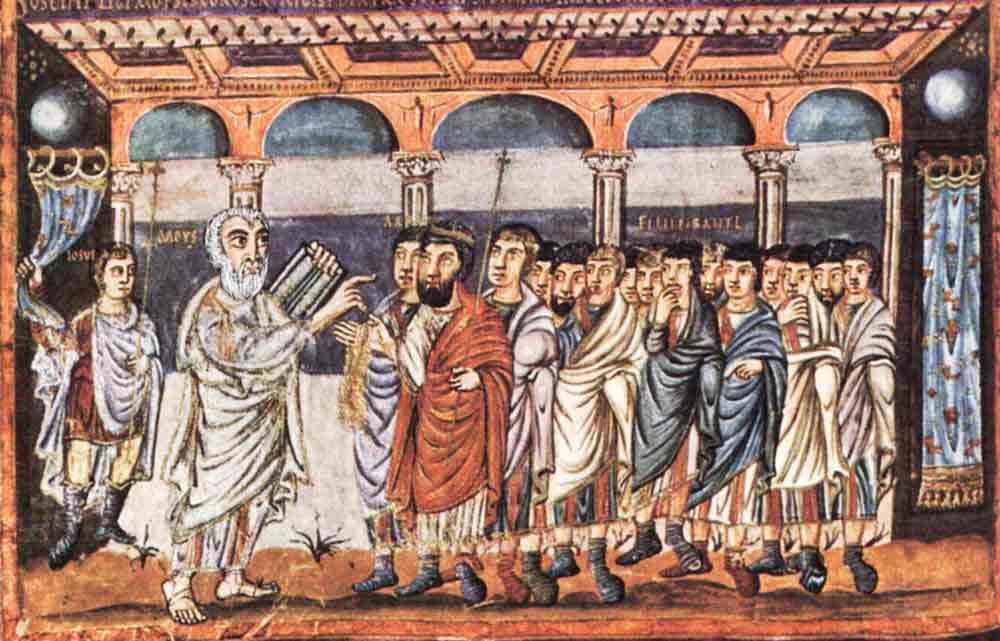
Those were the times when under the rule of the Ptolemies, the Greek culture was stealthily creeping into the culture as well as the mindset of the Israelites, who were sadly reduced to mere helpless spectators to the changing scene and could do nothing more than swallow the bitter pill. Moreover, these were also times that saw the rise of a Syrian-Greek general named ‘Seleucus’in the region to the east of the Greek empire. By 315 BC Seleucus had established the Seleucid Empire in the region.
As per the divisions of the empire worked out among the generals of ‘Alexander the Great’ after his death, Babylon and its neighbouring regions fell to the lot of Seleucus. However, brave and highly ambitious, that he was, Seleucus conquered the region of the Greek Empire stretching from the east of Babylon right up to the Indus River. The Ptolemaic and Seleucid empires maintained friendly relations till the time Seleucus was alive. However, after the death of Seleucus and that of Ptolemy I, their descendants did not continue this friendship. Both the empires, in fact, fought six bitter battles over a period of hundred and ten years. They are referred to as the ‘Syrian wars’.

Though bitter, the wars however, never turned out to be decisive. In some, the Ptolemies ended up victorious while in case of the others, it was the Seleucids. As a result, the reins of the land of Judah kept changing hands.
Yet, all the rulers barring an exception or two, maintained the political, religious and social autonomy of the Jews. As long as they paid the taxes in time, both the Ptolemaic and the Seleucid rulers were happy and did not interfere in their internal or other matters.
The resultant stability in the life of the Jews living in the region of Philistines brought them prosperity. The period saw an increase in the exports of food grains, olive oil, fish, meat, butter, honey, figs, dates, etc. from Jerusalem to Egypt and its neighbouring areas where they were in high demand. Also, Philistia had become an important centre between the East and the West for the trade of spices.
During the period, in Jerusalem, the position of the High Priest had become all-important and any matter concerning the Jews would be implemented or acted upon by the rulers only at his behest. Thus in a way, the High Priest also came to be the political leader of the Jews.
Though the reins of the land of Judah passed alternately from the hands of the Ptolemies to those of the Seleucids, the latter had grown much stronger by the end of the period of hundred and ten years. By the end of the fifth of the ‘Syrian wars’, a significant portion of the Ptolemaic Empire had come under the control of the Seleucids.
By 198 BC, the land of Judah too came under the absolute control of the Seleucids. The empire of the Ptolemies was restricted to Egypt and a few of its neighbouring areas.
However, by this time the neighbouring Roman Empire had started spreading itself in the coastal belt of the Mediterranean Sea. The Romans and the Greeks had already engaged in a few conflicts since 214 BC. Now, the Seleucid Empire too had started to feel the heat of the Roman expansionism. In the year 190 BC, the Romans conclusively defeated the Seleucids in the Battle of Magnesia and imposed a hefty annual levy which economically weakened them to an extent. Seleucus was thus on the lookout for new sources of revenue and earnings when he happened to learn about the enormous coffers and vast riches of the Holy Temple at Jerusalem. Some Jews, who favoured the Greeks are said to have tipped him off about this. With an eye on this wealth which could have easily replenished his empty exchequer, Seleucus sent ‘Heliodorus’, one of his ministers to Jerusalem.
However, on reaching Jerusalem, Heliodorus is said to have had strange experiences which prevented him from entering the treasure house of the Temple, so says the story.
Later, Heliodorus conspired and murdered Seleucus IV to ascend the Seleucid throne but his reign proved to be short-lived. ‘Antiochus IV’, the younger brother of Seleucus IV, wasted no time in acting against Heliodorus and had him killed. He then succeeded to the throne of the Seleucids. The year was 175 BC.
Antiochus IV is believed to be the cruelest and the most wicked of the Seleucid rulers. From the very start, he nursed a grudge against the Jews. He undertook the ‘Hellenization’ of the entire empire and at a pace much faster than that of any of his predecessors.
To achieve his goals in Jerusalem, he started to overhaul the entire prevalent structure. He sacked ‘Onias III’, the then High Priest and in his place, appointed ‘Jason’, a priest who favoured the Greeks. Of course, Jason was made to pay a price in return for the post. Jason then undertook a campaign to have citizens of Jerusalem register themselves as the authorized nationals of the Seleucid Empire.
However, Antiochus had intentions that did not at all comply with Jason’s expectations. So Jason, who believed that his position as the ‘High Priest’ was secure as long as he was in the good books of Antiochus, was in for a shock. In place of Jason Antiochus appointed ‘Menelaus’, who favoured the Greeks even more than Jason did and of course only after he paid him a sum higher than Jason! Antiochus had, for all practical purposes, auctioned the holy post!
167 BC, Antiochus left on the conquest of Egypt. It was rumored that he was killed while on the campaign. Taking advantage of the resulting chaos, Jason who had fled, returned to Jerusalem accompanied by a force of about a thousand troops. Intending to regain his position, he forced Menelaus to flee.

However, when the news reached Antiochus, construing the whole affair as a rebellion, he abandoned his campaign for Egypt halfway and returned to Jerusalem. He attacked the city and reappointed Menelaus as the High Priest. He went on to massacre thousands of Jews, looted the city and set it on fire. Within just three days, 40 thousand Jews were butchered while 80 thousand were reported missing, so says the story. Of course, only the Jews who opposed Hellenization faced the persecution. Those who accepted it were picked and let off the hook.
Following this, Antiochus forbade the Jews from following their religious tenets. But that was not all. He plundered the Holy Temple and also banned all the religious rituals which were practised there. Moreover, he established idols of the Greek Gods in the Holy Temple and began to use the altar to offer sacrifices to the Greek deities.
Humilated and enraged, the conservative Jews could take it no more. Already at the end of their tolerance, this instance proved the last straw on the camel’s back.(To be continued…)












